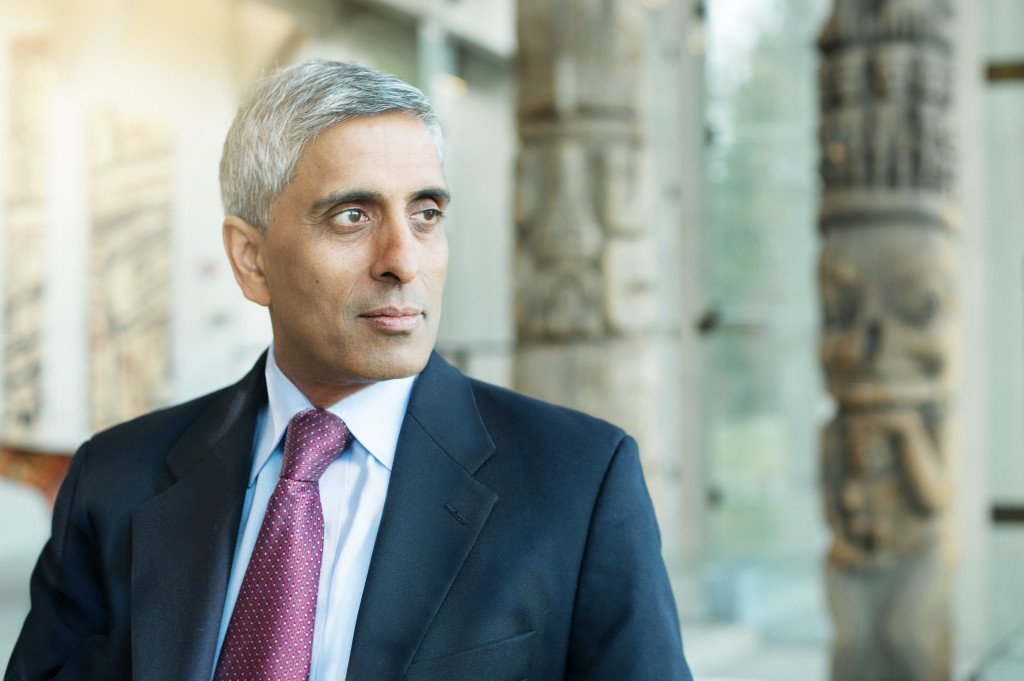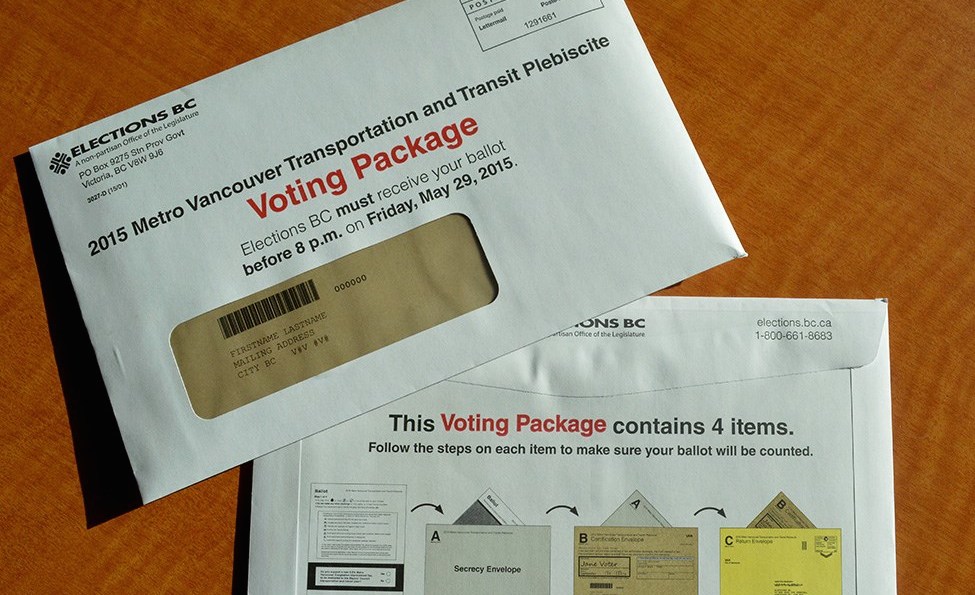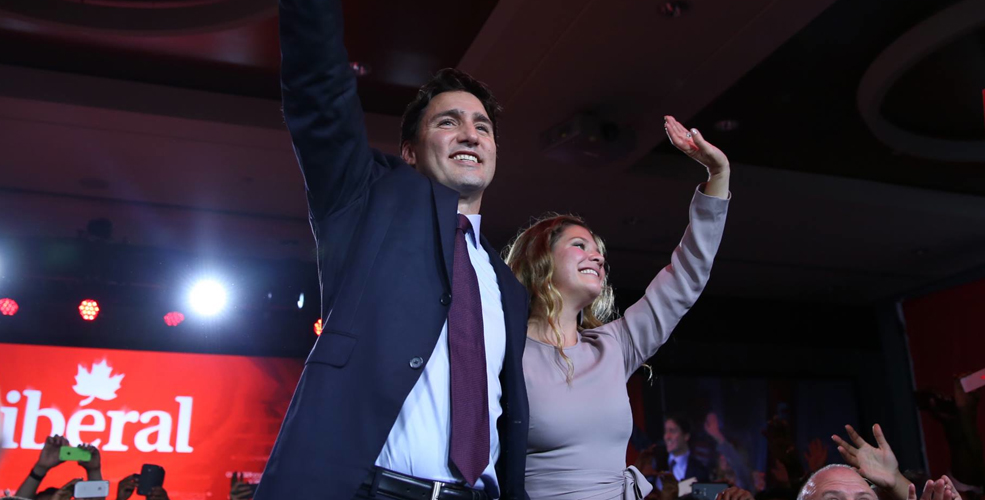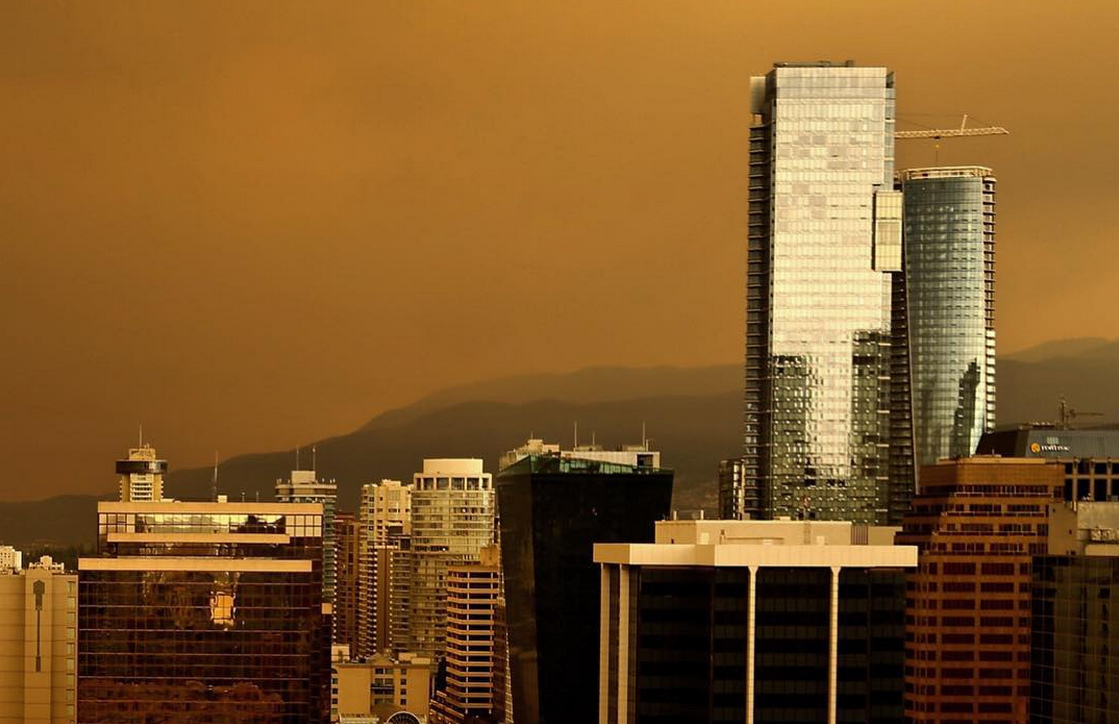
2015 was a big year for Vancouver. From rising real estate prices, to forest fires blazing through the summer, to heavy water restrictions, and the federal election, there was no shortage of wild news stories.
We’ve compiled a list of the biggest Vancouver news stories of the year – a trip down memory lane before we head into 2016.
14. Nordstrom Vancouver opens
The opening of American department store Nordstrom was one of the most buzzed about stories this year. Vancouver has never been much of a shopping mecca, but Nordstrom filled a much needed luxury niche. Hundreds of people lined up on opening day to shop for brands such as Balcenciaga, Céline, Chloé, and Christian Louboutin.
Nordstrom even put on a fashion show that put Vancouver Fashion Week to shame and attracted celebrities such as Coco Rocha and Zachary Quinto.
Add in a sweet candy shop designed for adults, a beautiful bistro, and a lockable phone charging station, and you have a shopping experience unlike any other in Vancouver.
[am2_see_also]
[am2_see_also]
13. Rising real estate prices
Rising real estate prices are, year over year, among the biggest news stories in Vancouver. From a heat map that shows where you can and can’t afford to live, to monthly stories saying demand is up while supply is down, it seemed downright depressing at times.
And it wasn’t just a Vancouver issue. More than half of Canadians say they can’t start a family because they can’t afford to buy a home. Yikes.
Couple rising real estate prices in Vancouver with the second lowest minimum wage in Canada, and you have a recipe for a lack of affordability.
[am2_see_also]
[am2_see_also]
[am2_see_also]
[am2_see_also]
12. Foreign real estate investment debate
Foreign home ownership was a topic of hot debate throughout 2015. Study after study came out attempting to determine how many of Vancouver’s homes were owned by foreign investors, but there was no official data from the province to be heard of – what’s more, Christy Clark said the province doesn’t intend to collect any.
Some say much of the foreign home ownership debate was embroiled in racism, and petitions were even launched to tax or restrict foreign ownership.
[am2_see_also]
[am2_see_also]
[am2_see_also]
[am2_see_also]
[am2_see_also]
11. Bon Jovi concert cancelled
Bon Jovi’s much lauded Stanley Park concert scheduled for August 22 was cancelled amid allegations that event organizers Paper Rain Performances failed to secure the proper permits – or as Bon Jovi’s camp said, they were “proven unable to guarantee a properly-produced event.”
Ticket holders were eventually honoured with a private show at Rogers Arena scheduled for the same day, August 22. Bon Jovi’s manager later spoke out and hinted at legal action against Paper Rain Performances – who ended up filing for bankruptcy.
10. Arvind Gupta, UBC President, resigns after 13 months
Just 13 months into the position, Arvind Gupta resigned from his role as the President and Vice-Chancellor of UBC. The resignation occurred just a month before the start of the new semester, and nearly half a year later few details over the circumstances of his departure are not known due to privacy and non-disclosure laws.
As well, the resignation was also the catalyst for other controversies: A UBC Sauder School of Business professor claimed the UBC Board Chair breached her academic freedom.
Gupta has since accepted a one-year position at the University of Toronto.
[am2_see_also]
[am2_see_also]
[am2_see_also]
9. “Om the Bridge” fiasco
The Burrard Bridge was supposed to be the venue for a giant outdoor yoga for International Day of Yoga on June 21, a project launched by Premier Christy Clark, but after concerns were raised by many regarding the cost of the provincially funded event (to the tune of $150,000) and that the event would also be held on National Aboriginal Day.
In one week of domino-effect-like consequences, event sponsors like lululemon and YYoga pulled out, Christy Clark claimed she would not participate, and the event was completely cancelled.
[am2_see_also]
[am2_see_also]
[am2_see_also]
[am2_see_also]

Image: Christy Clark / Flickr
8. The Paris Attacks and the world refugee crisis
The world refugee crisis was pushed into the hearts and minds of people around the globe when an image of a little boy washed up on a Turkish Beach was circulated by the media. When the Syrian boy’s connection to Vancouver was learned, the refugee crisis became a focal point of the Federal Election with all parties debating how many refugees should be let into Canada and how quickly.
With a growing ISIS presence, security was the number one concern for many, especially after multiple gunmen killed 130 people in various locations across Paris. But overwhelmingly, many Vancouverites, including businesses, developers, community organizations and churches stepped up to help the incoming refugees.

Ververidis Vasilis / Shutterstock
7. August windstorm wipes out power for 500,000
Over 500,000 B.C. Hydro customers lost power during a powerful wind and rain storm that hit Metro Vancouver on Saturday, August 29, with some staying in the dark for days later. Wind gusts were as high as 90km/hr in Tsawwassen, but it was the weather that most people were angry at.
Many people took to social media to voice their disappointment with B.C. Hydro for a failing website, poor communication, and slow response speeds. But on the bright side, the storm offered a much-needed heavy rainfall for the drought-stricken region.
[am2_see_also]
[am2_see_also]

Image: Jarett Kemp
6. Vancouver City Council votes to demolish viaducts
The controversial decision to demolish the one-kilometre-long Georgia and Dunsmuir Viaducts in downtown Vancouver was one of the most significant transportation policies made in City of Vancouver history.
In late-October, City Council approved a $300 million plan to demolish the bridge structures to make way for park space and housing projects. But the project had its critics: There are concerns over the impact to local traffic, whether the replacement road network will be able to handle current and future traffic as City planners claim.
5. Compass Cards start working
Originally slated for a 2012 launch, TransLink’s Compass Card project was stalled due to latency and reliability issues that arose with the ‘tap out’ function on the card-readers found on the buses. By tapping in and tapping out, transit riders could pay a more equitable distance-based fare.
To avoid any further delays, TransLink created a one-zone fare system on buses to allow for the full implementation of the Compass Card. However, this is only a temporary measure until a solution can be found for the tap out component and after a review is completed on the future fare structure.
4. Metro Vancouver transit plebiscite
A long and expensive campaign, costing Mayor’s Council $5.8 million, resulted in a resounding “No” from Metro Vancouverites after being faced with the question of lousy transit or a PST increase of 0.5%.
Had the coin fallen the other way, TransLink would have received $2.5 billion for a transportation plan that included an underground extension of the SkyTrain Millennium Line along Broadway, a light rail transit network in Surrey, a new seismically safe Pattullo Bridge, improved night bus service, the use of a third SeaBus and a significant increase in bus network frequency, including the introduction of 11 new B-Line rapid bus routes.
[am2_see_also]
3. English Bay oil spill
When a grain carrier spilled 2,800 litres of bunker fuel into English Bay on April 8, it revitalized the controversial conversation regarding oil tankers in our harbours.
Varying amounts of sticky black oil washed up on shores from English Bay to West Vancouver, and beaches were shut down for some time. The Canadian Coast Guard’s delayed response and the volleying of responsibility between the municipal, provincial, and federal governments caused anger and frustration with many locals who frequent Vancouver’s coast line. While the spill was eventually cleaned up, it sparked some thoughtful discussion on how Vancouver can best prevent future oil spills and respond to them adequately.
[am2_see_also]
[am2_see_also]
2. Federal Election
The 42nd Federal Election was a big one for Canadians, mostly because they had the chance to change leadership after nine years under Stephen Harper. From the Niqab debate to live election night results, and the big Liberal win, there was a seemingly endless media firestorm surrounding the election.
Vancity Buzz wrote over 125 stories on the subject, our most comprehensively covered event to date.
1. The hot, hot wildfire season and water restrictions
Our biggest story of the year was the harmful drought that plagued B.C. for the spring and summer, causing a costly and destructive wildfire season and the much-discussed water restrictions across Metro Vancouver.
The spring and early summer saw so little rain fall, such as only 4.2mm in the month of May, that Metro Vancouver began stage one water restrictions early on June 1. The quickly declining reservoir levels were alarming to many, with water reaching only 69% of its capacity by July 21. The authority eventually escalated restrictions to stage four. While a late summer storm on the Labour Day long weekend greatly helped, the accumulated rainfall in Vancouver between March and September was still 80% of normal.
This caused lawns to turn brown, many trees to die, and an aggressive wildfire season close to home, including a raging fire in Pemberton that almost jeopardized the Pemberton Music Festival – – plus a wave of hazy orange smoke to envelope Metro Vancouver for a few days in early July. A total of over 300,000 hectares of forest burned in B.C. in 2015.
[am2_see_also]
[am2_see_also]
[am2_see_also]
[am2_see_also]
[am2_see_also]

















